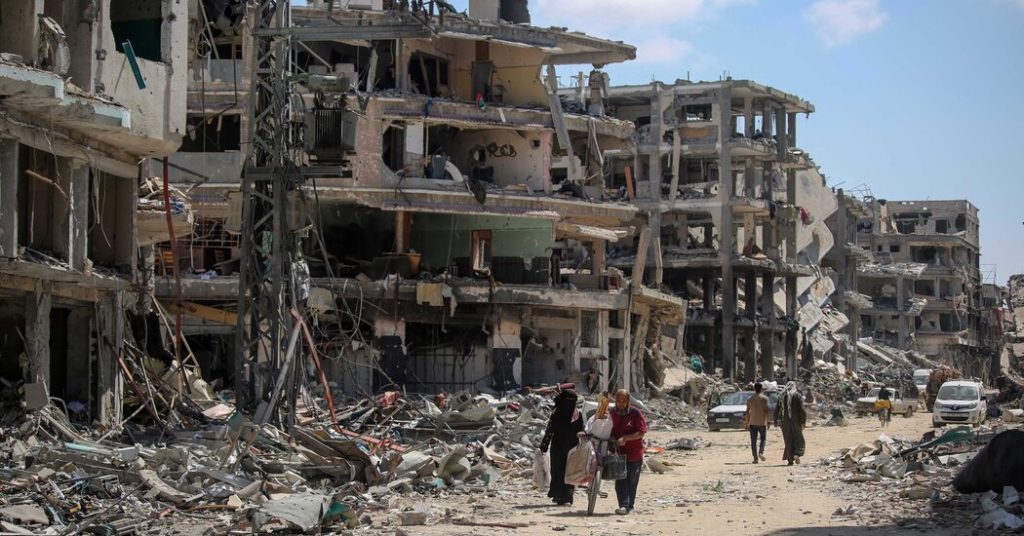In a deeply divided Israel, the recent Iranian barrage on Sunday has been met with mixed political interpretations. Prime Minister Benjamin Netanyahu’s supporters see the country’s defensive technology in action as proof of the threat posed by Iran. On the other hand, his opponents give credit to the Israeli air force, highlighting the political polarization in the country. The recent events came at a precarious time for Mr. Netanyahu, as he faces domestic unpopularity due to policy failures and international censure over the Gaza war. How he chooses to respond to Iran’s attack will have significant implications for him and the region.
Mr. Netanyahu has long been a vocal critic of Iran, warning about the catastrophic consequences of a nuclear Iran since his first term in office in 1996. He has consistently raised the alarm about Iran’s support for proxy militias across the region and its nuclear ambitions. His efforts have strained Israel’s relations with American presidents at times, particularly during the Obama administration when he pushed for clear “red lines” on Iran’s nuclear program. However, Mr. Netanyahu’s advocacy has also led to Israel forging diplomatic ties with Arab states opposed to Iran.
Despite criticism of Mr. Netanyahu’s handling of the Iran issue, he remains a central figure in Israeli politics and diplomacy. His leadership and global diplomacy efforts have brought attention to Iran’s nuclear progress and regional influence. Supporters credit him with investing in Israel’s air defense system, which intercepted the majority of Iranian drones and missiles during the recent attack. While some view his campaign against Iran as a key part of his legacy, others see it as a divisive issue that has strained relations with allies.
As Israel faces the choice of whether to respond forcefully to Iran or show restraint, Mr. Netanyahu’s next move will be critical. The possibility of a broader war and further destabilization in the region hangs in the balance. Israel’s allies have urged caution and thoughtful consideration before any retaliation. The political and social divisions within Israel add complexity to the situation, with each side interpreting events through their own lens. Regardless of the outcome, Mr. Netanyahu remains a significant player on the global stage, navigating the complexities of regional diplomacy and security.
The recent events have once again brought attention to the ongoing tensions between Israel and Iran, as well as the broader implications for regional stability. The threat posed by Iran’s proxy militias and potential nuclear capabilities continues to be a key concern for Israeli policymakers. Mr. Netanyahu’s longstanding campaign against Iran has shaped Israel’s foreign policy and security posture, contributing to both international support and criticism. How he navigates the current situation will have lasting consequences for Israel and the broader Middle East. As the region remains volatile, the need for strategic and thoughtful leadership is paramount in addressing the complex challenges ahead.


